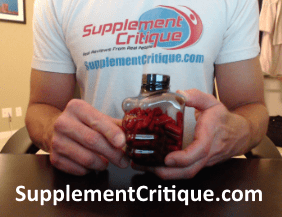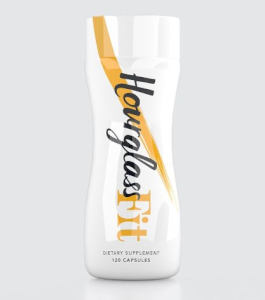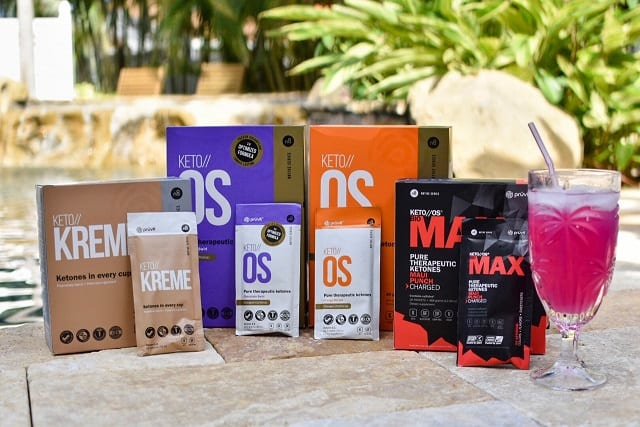Dr. Oz Weight Loss Gummies: The Shocking Truth Behind the Scam
By: Rob MillerDr. Mehmet Oz, a well-known figure in the health and wellness industry, has had a significant impact on weight loss products through his television show.
His endorsements have often generated widespread public interest, leading to a phenomenon known as the “Dr. Oz Effect.” However, this influence is not without controversy.
Critics accuse him of promoting questionable diet supplements, raising ethical concerns about the legitimacy of these products.
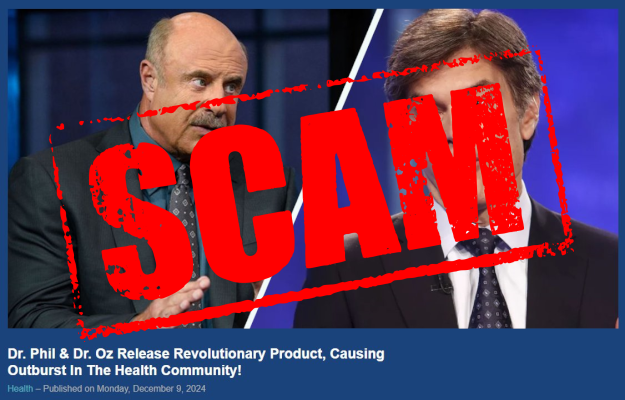
Weight loss gummies bearing Dr. Oz’s name have become particularly contentious, with many questioning their effectiveness and labeling them as a scam.
With terms like “magic weight-loss cure” being associated with these products, consumer trust is at stake.
In this article, we explore the truth behind Dr. Oz Weight Loss Gummies, investigating whether they genuinely deliver on their promises or are merely part of a larger trend of deceptive marketing practices in the supplement industry.
The Rise of Dr. Oz and His Influence

Dr. Mehmet Oz, a well-known celebrity doctor, has found a special place in the health and wellness industry.
He was born in Cleveland, Ohio, and decided to become a doctor.
He went to the University of Pennsylvania School of Medicine, where he earned his medical degree.
With his knowledge in heart surgery and alternative medicine, he eventually became famous as a trusted health expert.
From Television Appearances to Own Show
Dr. Oz became more popular when he started appearing on “The Oprah Winfrey Show.” His charming personality and easy-to-understand health tips won over many viewers.
This exposure opened doors for him to have his own TV show called The Dr. Oz Show, which premiered in 2009. The show quickly gained a huge following, attracting millions of viewers not just in the United States but also internationally.
Endorsements and the Impact on the Supplement Industry
With such a large audience, Dr. Oz saw an opportunity to promote various health products, including supplements like the Dr. Oz Gummy.
This led to a phenomenon known as the “Dr. Oz Effect,” where products featured on his show experienced instant boosts in popularity and sales.
Positive Effects on the Supplement Industry
- Increased visibility: Products endorsed by Dr. Oz received significant media attention and exposure, leading to greater awareness among consumers.
- Boosted sales: Many companies reported substantial increases in sales following their appearance on The Dr. Oz Show, demonstrating the direct impact of his endorsement.
- Validation of alternative therapies: Dr. Oz’s support for certain complementary medicine practices helped legitimize these approaches in the eyes of some consumers.
Criticism and Concerns
While the “Dr. Oz Effect” had positive outcomes for some businesses, it also raised concerns:
- Scientific validity: Critics questioned the evidence behind certain products promoted on the show, arguing that they lacked rigorous scientific studies to support their claims.
- Misuse by fraudulent marketers: Some individuals took advantage of Dr. Oz’s name and reputation to promote dubious products or scams without his knowledge or endorsement.
The Power of Celebrity Endorsements
The “Dr. Oz Effect” demonstrates how endorsements from celebrities, particularly trusted figures like Dr. Oz, can greatly influence consumer behavior and market trends.
It also highlights ethical challenges surrounding product endorsements, especially when it comes to health and wellness items that promise quick fixes or miraculous solutions.
As we navigate this complex landscape of celebrity influence in the wellness industry, it’s crucial for both consumers and marketers alike to critically evaluate claims made by public figures and prioritize evidence-based approaches over sensationalized promises.
The Claims Behind Dr. Oz Weight Loss Gummies
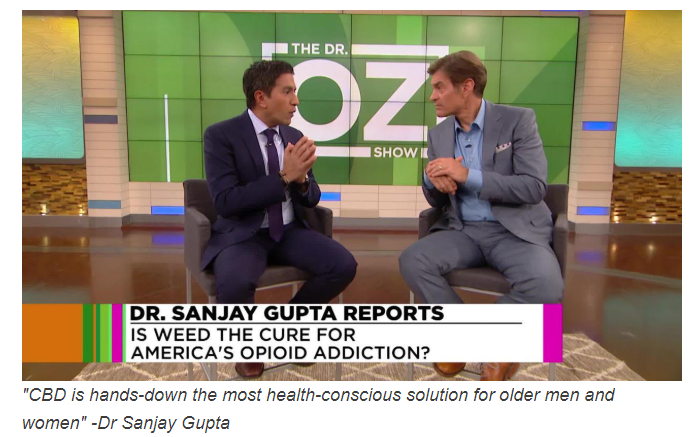
Dr. Oz weight loss gummies are marketed as a quick and easy solution for weight loss, with promises of rapid results without the need for strict dieting or exercise.
The marketing strategies behind these products often use enticing phrases like “magic weight-loss cure” to attract potential buyers.
What Do the Advertisements Say?
The advertisements for Dr. Oz diet gummies typically emphasize natural ingredients and scientifically-backed formulations, although specific details are often unclear or not proven. Here are some common phrases used in the marketing:
- “Shed pounds effortlessly”
- “Revolutionary fat-burning formula”
- “Clinically proven ingredients”
How Does Dr. Oz Influence Consumer Perceptions?
Dr. Oz’s influence plays a significant role in shaping how consumers perceive these products.
Many people view his endorsements as a sign of credibility and trustworthiness.
However, there have been concerns raised about the legitimacy of such claims, particularly with the emergence of the Dr. Oz Weight Loss Gummies Scam.
Critics argue that these promotions take advantage of consumer trust by using Dr. Oz’s reputation without providing solid evidence of effectiveness.
What Do Consumers Think?
Feedback from consumers regarding dr oz keto acv gummies and similar products is mixed.
While some users report positive experiences, others find little to no results, raising doubts about the authenticity of the advertised benefits.
This lack of consistent outcomes has led to skepticism and discussions about whether these products actually live up to their promises or if they are simply exploiting Dr. Oz’s fame for profit.
Understanding these factors is important when assessing the true worth of weight loss supplements associated with celebrity endorsements.
It opens up opportunities for further investigation into allegations of misleading advertising and scams within the industry.
The Allegations of Scam and Misleading Advertising
Dr. Oz has faced significant scrutiny regarding the promotion of weight-loss products, particularly those marketed on his television show.
Critics argue that his endorsements have contributed to the proliferation of scams within the supplement industry, with allegations focusing on misleading advertising practices.
Allegations Against Dr. Oz:
- False Claims: Many allegations revolve around Dr. Oz’s use of terms like “magic weight-loss cure,” which critics claim are exaggerated and lead consumers to believe in unsubstantiated results.
- Consumer Protection Concerns: The Federal Trade Commission (FTC) has highlighted ongoing challenges in regulating false claims in the dietary supplement market, emphasizing the need for consumer protection against deceptive marketing.
Deceptive Advertising Practices:
The supplement industry is notorious for its complex web of marketing tactics designed to entice consumers.
Products endorsed by Dr. Oz often experience a surge in popularity, a phenomenon known as the “Dr. Oz Effect.” This spike in demand can lead to:
- Fraudulent Marketing: Scam artists frequently exploit the increased visibility of these products, creating false advertisements that mimic legitimate endorsements.
- Case Studies and Examples: Instances of fraud linked to Oz-endorsed products include companies fabricating clinical studies or testimonials to bolster their claims.
Such practices mislead consumers into purchasing ineffective or potentially harmful supplements.
Industry Challenges:
Despite efforts by regulatory bodies like the FTC to curb these deceptive practices, enforcement remains challenging due to the intricate marketing strategies employed by supplement manufacturers.
This situation underscores the importance of transparency and accountability in product endorsements, especially by influential figures like Dr. Oz.
Criticism and Defense of Dr. Oz’s Practices
Dr. Oz has faced substantial criticism from lawmakers regarding his endorsements of weight loss products, with Senator Claire McCaskill being one of the most vocal critics.
During a notable Senate hearing, McCaskill accused Dr. Oz of misleading consumers by promoting dietary supplements that lacked scientific validation.
She emphasized how his endorsements often led to a surge in demand, inadvertently encouraging fraudulent marketers to exploit the public’s trust.
The scientific scrutiny surrounding Dr. Oz’s product endorsements highlights the divide between anecdotal support and evidence-based practices.
Critics argue that his use of persuasive language, like “magic weight-loss cure,” contributes to unrealistic consumer expectations and undermines public trust in genuine health recommendations.
In defense, Dr. Oz maintains that his intentions are centered on providing motivation and hope to those struggling with weight issues.
He argues that while some products may not withstand rigorous scientific evaluation, they still can offer benefits to certain individuals.
His perspective suggests a belief in the potential efficacy of these supplements when combined with healthy lifestyle choices.
Despite these intentions, the impact on public trust remains a significant concern.
The line between promoting hope and endorsing unverified solutions is delicate, raising ethical questions about the responsibility of celebrity figures in influencing consumer behavior.
Public discourse continues to question whether Dr. Oz should pivot towards advocating more scientifically supported methods for weight management, such as balanced nutrition and regular exercise, to preserve credibility in health recommendations.
The Ethical Implications for Celebrity Endorsements
Celebrity endorsements hold significant sway in influencing consumer behavior, particularly in the health and wellness industry.
When figures like Dr. Oz lend their name to products such as weight loss gummies, the ethical responsibilities they shoulder become crucial. Ethical marketing practices demand that endorsers ensure the products they promote are backed by credible evidence and do not mislead consumers.
The Dr. Oz Weight Loss Gummies Scam highlights the potential pitfalls of celebrity endorsements.
Consumers often trust these endorsements due to the celebrity’s perceived authority or expertise, which can lead to misplaced trust in unverified products.
This raises questions about the responsibility celebrities have to their audience; they must consider whether their promotional activities are contributing to informed decision-making or merely capitalizing on their influence.
Misleading endorsements can have severe consequences for consumers:
- Financial Loss: Individuals invest in products expecting results that may never materialize.
- Health Risks: Unregulated supplements might cause adverse effects, posing real dangers to users.
- Erosion of Trust: Continued exposure to deceptive marketing erodes public trust not only in the endorser but also in legitimate health guidance.
Transparency in advertising is critical.
It ensures that consumers can make informed choices about their health without being swayed by false promises.
Celebrities, therefore, have a duty to advocate for products that genuinely benefit consumers and stand up against misleading practices.
This commitment to ethical responsibility fosters a healthier marketplace where trust and authenticity prevail.
Conclusion
When it comes to weight loss products, it’s important to make informed decisions.
Not every product delivers on its promises, and this is especially true for Dr. Oz Weight Loss Gummies.
Before buying any dietary supplement, make sure to do your research. Look into the ingredients, read consumer reviews, and if possible, talk to a healthcare professional.
Being aware of scams is crucial in fighting against fraudulent claims.
Understanding deceptive marketing tactics can help protect you from falling victim to such scams.
The Dr. Oz Weight Loss Gummies Scam serves as a reminder that not all endorsements are supported by scientific evidence or genuine effectiveness.
When assessing weight loss solutions, empower yourself with knowledge and skepticism.
This way, you contribute to raising awareness about scams in the weight-loss industry and ensure that your health decisions are based on facts rather than hype.
Related Articles
Top 3 Weight LossAffiliate Disclosure
Instant Knockout is actually a new fat burning supplement I just came across, and got great results.
HourGlass Fit is the BEST fat burner for women we’ve ever tested.
Read our review here.
Biohacks your body into instant ketosis to burn fat instead of carbs.
Weight loss, energy, focus, anti-inflammatory, anti-aging.



